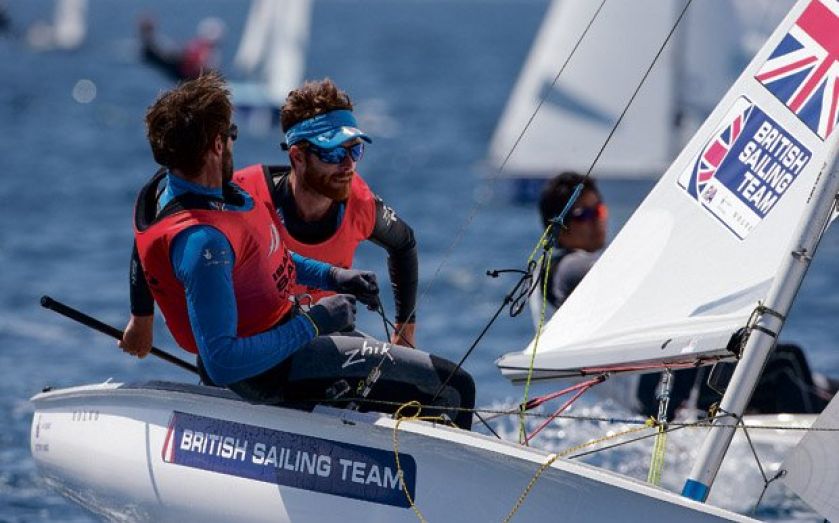“We are almost always digging into more debt, that’s the reality”

Sailing is a British success story yet it is short of sponsors
BRITISH sailors may lay claim to being the undisputed masters of the wave but a lack of financial muscle is threatening to overshadow the nation’s pursuit of a golden Olympic Games in Rio de Janeiro next year.
The British Sailing Team has 54 Olympic medals, including 25 golds, in its back pocket and has topped the medal table at the last four summer Games, leaving seafaring rivals trailing in its wake.
Only the disciplines of athletics, rowing and cycling have secured more golds for Great Britain in Olympic history than sailing, while just those three sports plus swimming have snared more medals of any colour.
Sailing hit its medal target at London 2012 with five in total, including a standout fourth career gold for Sir Ben Ainslie – the most decorated Olympic sailor on the planet – although a haul of four silvers may have been tinged with a degree of disappointment.
Solid progress has been made since. British sailors netted eight medals across seven Olympic classes in last year’s Rio Olympic test event, which was followed by promising displays at the ISAF World Championships and World Cup regattas in Miami and, most recently, Hyeres in France.
But while the sport continues to receive invaluable National Lottery funding via UK Sport, as well as financial support from other partners, thoughts have tended to drift to the potential heights that could be scaled with additional resources.
“Ultimately we have been struggling in this Olympic cycle to bring in commercial partners,” said British Sailing manager Stephen Park OBE.
“Commercial partners would give a boost to the finances of our programme and allow us to spend money on some of the smaller gains at the top end of the performance graph.
“When you’re dealing with very small margins, you’re often into an area of diminishing returns, and the final 0.1 of a per cent in performance can cost quite a lot to achieve in terms of technical knowledge or equipment development.
“But those percentages often make the difference between winning gold or winning silver, bronze or coming fourth.
“We are more limited in the options we have and that has a potential impact on medal winning.”
Given sailing’s illustrious history and consistent record of achievement, are there envious glances at less successful sports on the Olympic circuit which appear to have greater pulling power in the realm of commercial partners?
“It’s not so much envy as disappointment as we believe there is a good commercial opportunity,” added Park. “It’s not dispiriting either. At the end of the day we will absolutely make the best of what we have.
“We are focused on winning medals. Sponsorship pounds would help secure the likelihood of winning medals and allow us to invest in those fine details that will ultimately make sure those medals are gold rather than silver or bronze.
ZERO POUNDS
“As one of the more successful sports you would have hoped it was an easily definable sell in terms of return and investment to potential partners. After all, there is a greater likelihood of association with success.”
Luke Patience, who won silver at London 2012 in the 470 class alongside Stuart Bithell, admits commercial pressures affect his and new partner Elliot Willis’s hopes in of gold in Rio.
“Absolutely there is financial pressure on the individuals. Taking myself, I try to live as simple life as I can to save as much money for the sport,” said Patience.
“I don’t own a house, I try and rent because I cannot afford a deposit. We’re very fortunate to get free cars otherwise I’d be driving a few grand banger to save a bit of cash. It affects all areas. We live off a shoestring.
“Don’t get me wrong, we are very grateful for the support we get from UK Sport and the National Lottery, that’s fantastic, but whether it is fantastic or not, it is in isolation to the fact we cannot make the ends meet.
“We cannot get to the end of the month with it being zero pounds and zero pence. We’re almost always in the minus and digging into more debt and that’s the reality.
“Some quarters, we do not know how we are going to pay for the next quarter. And I don’t mean the five-star hotel that we definitely don’t stay in, I mean how are we going to get through with the equipment we need just to go and race.
“It’s tricky, especially when we’re trying to take home gold medals to queen and country.”